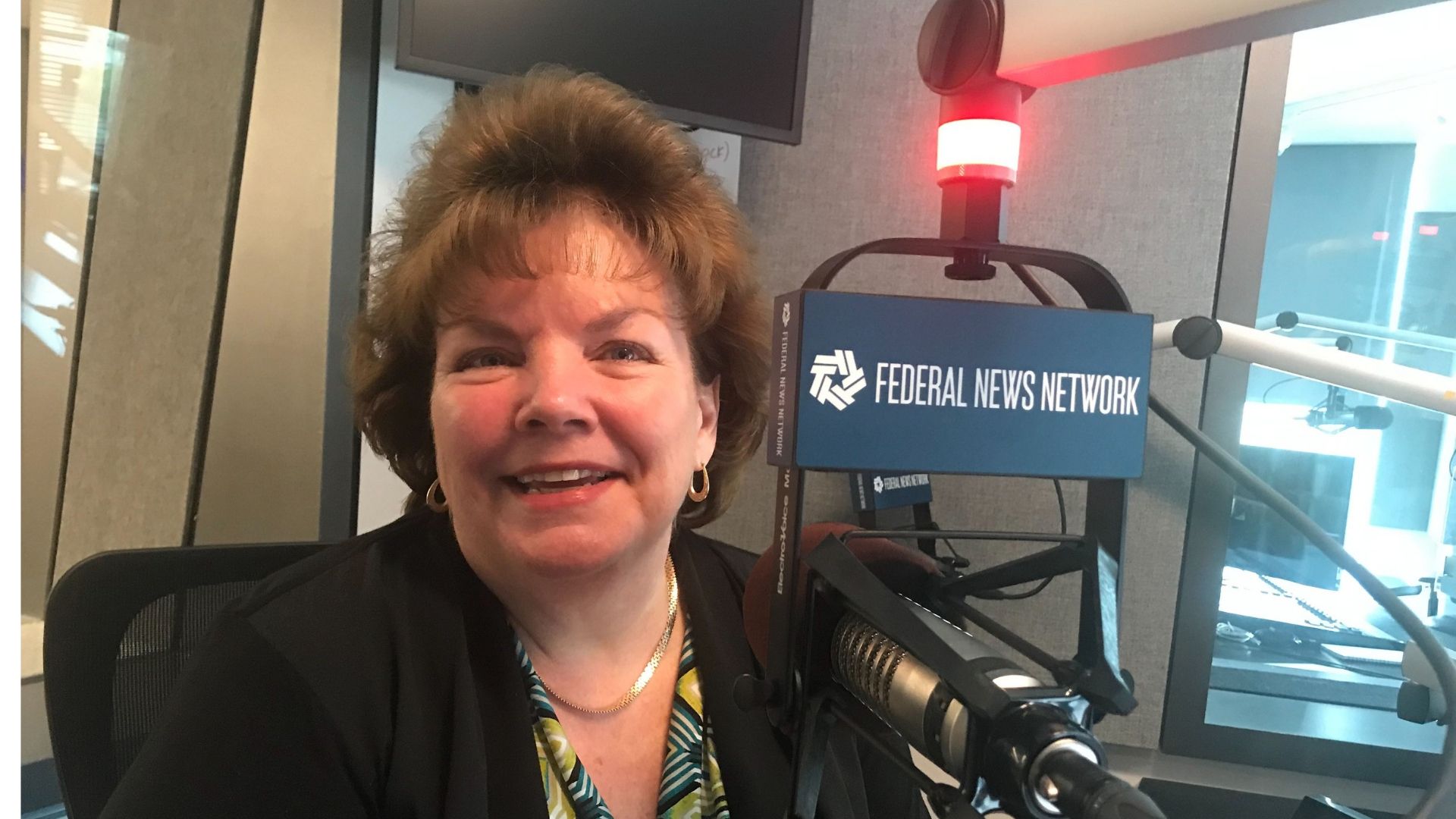

Gigi Schumm welcomes Susan McHugh-Polley, a 31-year veteran of the federal workforce, on this week's episode of Women of Washington. Polley says change is truly...
Best listening experience is on Chrome, Firefox or Safari. Subscribe to Women of Washington’s audio interviews on Apple Podcasts or PodcastOne.
What needs to be done to influence change? Susan McHugh-Polley said making the right decision, even when it’s unpopular, is vital.
On this week’s episode of Women of Washington, host Gigi Schumm welcomed McHugh-Polley, a 31-year veteran of the federal workforce. Polley recently retired from government after working for the Department of Veterans Affairs. Now she serves in the private sector as a strategic advisor covering the federal market at World Wide Technology (WWT).
Her first federal job was with the Justice Department after the passage of the Immigration and Control Act of 1988.

After the Sept. 11 attacks just before the Oklahoma City Bombings, Polley helped the government stand up the Department of Homeland Security and its 22 agencies. At the time, she said the world was on high alert and the government faced many challenges. It could no longer rely on legacy data or systems.
“People are very passionate about what they have and what they know. When you’re going into the unknown, such as standing up DHS, I looked at it differently … We could design and create this as an opportunity to lean forward and change,” Polley said. “But working on the 22 agencies and getting it right, it took some time. But there were definitely culture changes. There were definite power changes. People didn’t want to give up what they knew. But it [also took some] leaning forward in an uncomfortable moment to embrace the unknown.”
She said she learned in that situation how to work together with other leaders to try new things and go from there. It was that experience within DHS that helped her transition into VA.
When she started her position at the VA Polley said she noticed a lot of disconnect between the offices. One of the biggest challenges came from rules that were stood up decades before. She was able to help stand up practices there that essentially “right-sized” the agency and allowed the different offices to work together and address issues quicker.
“We did a right-sizing of the field to make sure there were bodies on the ground, and boots on the ground, and services that we could do to really get to our end users,” she said. “Speed to service was critical to do that alignment so that we could make sure the veterans are getting the desperate care they need.”
As deputy assistant secretary for IT, she was responsible for the work of more than 380,000 VA employees and a budget of $2.7 billion. She also helped to stand up the Enterprise Cybersecurity Plan. Her brothers and many other members of her family were in the military and she said working for VA just made sense.
It was just challenging for her to get past the rules that were already set in place. In fact, many times her colleagues were so focused on the end result, they missed steps along the way.
“Everyone wants to do the right thing for the veterans and for each other,” Polley said. “That passion is sometimes so focused on what you want to see as the end [and] you’re not realizing a lot of times that along the path, things you’ve missed or haven’t been able to pick up that could have helped you be more successful.”
After three decades in the public sector, Polley announced last May that she would be leaving the federal workforce. She said it was difficult choosing her next move, but WWT really opened her eyes to capabilities she said would have been useful during her tenure.
“So I went to St. Louis and the entire executive team allowed me a full day to interview with them and really talk to them … And you have to go with what your gut tells you and that feeling was that I really wanted to be with this company and bring them into what they’re trying to stand up in the public sector, especially on the civilian side of government,” she said. “If I would have had some of the capabilities that they had, I know the speed of service that we could have provided our end users would have been fantastic.”

“It’s been a game changer,” she said. “They really encourage diversity, women, technology and there’s nothing that they say ‘no’ to. They say, ‘OK, let’s try it, and then let’s see how we can fix it and go from there.’ It’s been a wonderful experience for me.”
Much of her life was spent traveling across the country both with DOJ and VA. But she said there were times when she needed to take a step back.
“I didn’t think of it as failure or negative. I always called it my positive pause time,” she said. “You need to get back to some activities and really work on that work-life balance.”
Even in her current role, Polley enjoys reading, riding her bike through the park in her Florida neighborhood or spending time with her two brothers Robert and Paul.
Polley said if she hadn’t gone down the federal service or contractor role, she would have worked in the hotel system. She said she really enjoys people and would like to make sure their experience is a good one.
That work is similar to what she does at WWT — essentially helping to test drive IT services that could make the government’s experience with their constituents better. She said embracing the unknown and not letting your mistakes define you is really important.
“Don’t be afraid to fail … it’s okay to fail, because there’s a different with being afraid and having to be OK. I would also say that you really need to hone in on others’ communication,” she said. “It’s not just what people are saying, it’s the unsound word.”
Copyright © 2025 Federal News Network. All rights reserved. This website is not intended for users located within the European Economic Area.
Steff Thomas is a digital editor at Federal News Network.
